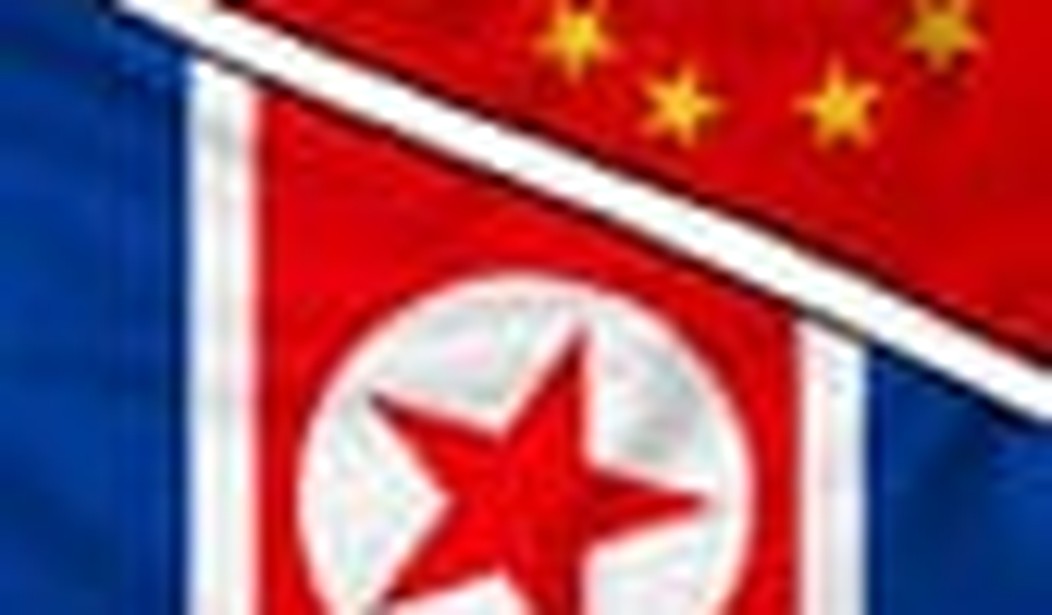“No one should be allowed to throw a region and even the whole world into chaos for selfish gains,” said President Xi Jinping on Sunday at a regional forum hosted by Beijing.
Immediately, global media interpreted the remarks as a rebuke of North Korea. The New York Times, for instance, called Xi’s words “an indirect but clear criticism of China’s longtime ally.”
Has Beijing finally made the switch from supporting Pyongyang to siding with the international community?
Most everyone thinks so. After all, who else could Xi have been referring to on Sunday? The North Koreans in recent weeks repudiated the armistice that ended fighting in the Korean War, announced they were ready to launch a pre-emptive nuclear strike on the United States, and talked almost daily in apocalyptic terms.
They also effectively closed the last cooperative project been the two Koreas and deployed two intermediate-range ballistic missiles on their mobile launchers, getting them into position for firing. No wonder White House spokesman Jay Carney welcomed the comments from China’s new leader.
Not so fast. On Monday, Foreign Ministry spokesman Hong Lei refused to confirm that Xi had North Korea in mind when he uttered those words.
And the following day, People’s Daily, the Communist Party’s flagship publication, issued a stinging commentary, leaving no doubt who Xi thought was the culprit.
“Some country has spent hundreds of billions of U.S. dollars creating a situation that cannot be resolved and has eventually withdrawn in a disorganized manner at the same time causing a financial crisis in its own country,” stated a commentary titled “Who Has the Intention to Create Chaos for the World for Selfish Gain?” “Look back on the world’s security situation to the beginning of the new century. There are many ‘hot spots’ and ‘chaotic spots.’ The first of them are Afghanistan and Iraq.”
The People’s Daily commentary not only clarifies Mr. Xi’s intent, it also puts the movement of Chinese forces on the border with North Korea in an ominous light. Since the middle of last month, the People’s Liberation Army has been mobilizing troops, planes, and ships there. The border forces once were — and may now still be — at the highest state of alert. There are also reports of Chinese live-fire drills in the area.
Analysts have assumed that the Chinese mobilization was intended to intimidate the North Koreans, but, in light of Xi Jinping’s comments on Sunday, perhaps the military movements are a warning to America and South Korea instead.
Why would Beijing back the world’s most ruthless regime? The answer lies in China’s fraying political system, which is allowing generals and admirals to cement control over policymaking.
Chinese flag officers gained influence last year as feuding civilians sought military support for their bids for promotion as the Communist Party retired Fourth Generation leaders, led by Hu Jintao, and replaced them with the Fifth, under the command of Xi Jinping. The People’s Liberation Army, which may now be the most powerful faction in the Party, has traditionally maintained its pro-Pyongyang views, and it is apparently using its enhanced standing to push Beijing closer to Pyongyang.
The rise of the military has had consequences. For instance, the PLA has sold the North Koreans at least six mobile launchers for their new KN-08 missile, which can hit the U.S. These launchers substantially increase Pyongyang’s ability to wage a nuclear war and are the primary reason the Obama administration decided last month to go ahead with the 14 missile interceptors in Alaska.
Today, in the Chinese capital there are many academics and Foreign Ministry professionals who know that supporting North Korea is not in China’s long-term interest. Yet where it counts — at the top of the political system — there is no consensus to change long-held policies supporting the Kim family regime.
The Chinese must do more than just begin a fundamental shift in their foreign policy. They must complete the process of both shedding the self-image as outsiders and ending their traditional role as adversaries of the existing global order. Such a change inevitably occurs when rising power matures, but it only happens after internal perceptions have shifted over time. The problem is that today, when we need China’s help, Chinese officials are not ready to act responsibly.
So don’t be surprised that Mr. Xi is blaming the United States for North Korea’s provocative behavior. Something is very wrong in Pyongyang — and in Beijing as well.
Also read: Pentagon: North Korea Nuke Report Was Taken Out of Context









Join the conversation as a VIP Member